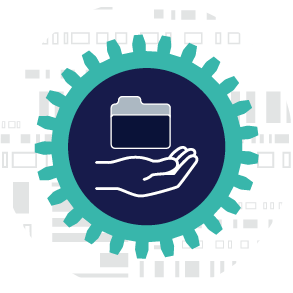Future of Work and People Strategy
Sustaining HR’s Standing: 7 Critical Capabilities for a Future-ready HR Function
The workforce disruption caused by the Covid-19 pandemic created a platform for HR to demonstrate its value in serving and supporting business strategy. Over the past 18 months, HR functions have been called upon as never before to help the business adapt and support the performance and wellbeing of the workforce.
In order to sustain this standing – and be well-positioned to build the function’s profile and credibility as it maps out a future agenda – where might HR leaders need to develop or enhance their capabilities?
Many HR practitioners are used to, and comfortable with, transactional work. However, to become more strategic and focused on developing a high performing organisation, HR will need to develop its commercial, consulting and analytical capabilities.
Our survey of CHROs, found that their biggest concerns around the future capabilities of the HR function include the use of data and analytics; adoption of HR technology and automation; expertise in OD and culture change, and HR’s contribution to supporting innovation and growth. In developing a future-fit HR function, CHROs will need to decide whether to hire or develop people with these capabilities, and identify the implications for HR career paths.
We have identified seven priority capabilities that HR should be prioritising for development to be future-ready. Each section includes links to relevant CRF resources for building these skills:
BUSINESS ACUMEN
HR people need to be, first and foremost, business people. HR does not exist as an end in itself – it is there to support execution of the business strategy and delivery of business objectives. Effective HR professionals are genuinely fascinated by how the business creates value, who are its customers, why they do business with you, what are the expectations of investors and other stakeholders, and the identity and market positioning of key competitors. They understand the business model and value chain, and can identify and work with the key drivers of higher business performance. This is not an academic exercise – by developing a deep understanding of business and strategic issues, and linking HR activities to them, HR professionals can build credibility and deliver value. Sadly, HR can sometimes push ‘products’, such as performance appraisals, that have little commercial benefit, or can become preoccupied with pursuing ‘best practice’ rather than making sure HR solutions have clear business goals.


CRF Digital Communities
Join one of CRF’s four digital communities to exchange with peers in other organisations
BRINGING THE OUTSIDE IN
HR occupies a unique role in many organisations, being one of the few functions that works and has influence across all organisational silos. It can use its unique position to bring an external perspective, whether that’s bringing in new ideas, advocating the customer viewpoint, challenging the feasibility of business strategies or promoting the voice of employees. This means being aware of broad political, economic, social, technological, legal and environmental trends and how they might affect the organisation and the workforce, and being able to interpret them for the organisation and frame them in a way that can inform decision making. It requires HR people to be connected to external networks and spend a percentage of their time outside the business.
DEEP EXPERTISE IN HR
HR practice is based on a deep and extensive body of knowledge, developed over decades and continuously evolving. There is a theoretical underpin to HR, but there is also an art and a craft developed through experience and judgment. Successful practitioners will need to become proficient in all three. The specific body of knowledge will differ depending on role (e.g. reward vs. talent management). However, the principles of understanding the underlying science and good practice, effective application in addressing business issues, taking an evidence-based approach, evaluating outcomes and continuously improving practice, apply. As a minimum, HR needs to be able to assess people and judge situations and this requires expertise in organisational and individual psychology.

On Demand Courses
Enrol onto our On Demand courses, including our flagship Effective HR Business Partnering, and others in our HRBP Suite.
DESIGN SKILLS
As organisations increasingly view employees as internal customers, HR professionals will need to develop skills in areas such as design thinking, user interface design, and human-centred design. HR will also benefit from getting closer to marketing, as the employer and corporate brands become more closely integrated. HR can learn much from marketing, particularly in areas where they are typically more advanced than HR, such as social media and data analytics.
ORGANISATION DEVELOPMENT AND CHANGE MANAGEMENT
HR needs expertise in culture and behaviour change, organisation design and the principal tools and frameworks of organisation development. It’s important to view the organisation from a whole-systems perspective, working on the level of the organisation and not just the individuals who work there. HR needs to make the link between strategy, the work that needs to be done, and the organisation design and organisation capabilities needed to deliver it. Strong skills in contracting, consulting and relationship building with key stakeholders are also required. It’s essential to gain a thorough understanding of the organisation first, and then develop robust and relevant solutions that are appropriate for the organisation’s context. Charan, Barton and Carey suggest giving early-career HR professionals rigorous training in business analysis, along the lines that consultancies do.
PROJECT AND PROGRAMME MANAGEMENT
HR needs to be able to apply its expertise and business knowledge to develop and execute an effective plan. As more HR work is delivered through projects, HR will also need to develop expertise in project and programme management.
DATA ORIENTATION
The practice of HR is increasingly reliant on data and analytics – data underpins HR’s processes and systems more than ever. As organisations are building and deploying dashboards and reporting systems that put data directly in the hands of HR, it will be necessary to ensure that HR professionals are capable and confident in using the tools that are available to them.
HR can build on its pandemic standing to have greater influence in advising the board and executive team, making sure the people agenda is core to the business strategy, and shaping the future direction of the business.
In the organisation of the future, HR professionals must act foremost as business people. To be effective, we must continue to build commercial understanding, apply deep HR expertise to the challenges faced by our organisations, and make sure our operating model is set up to deliver both operational excellence and strategic impact.
This article is adapted from our full research report HR’s Agenda in the Organisation of the Future.
MEMBER LOGIN TO ACCESS ALL CRF CONTENT




